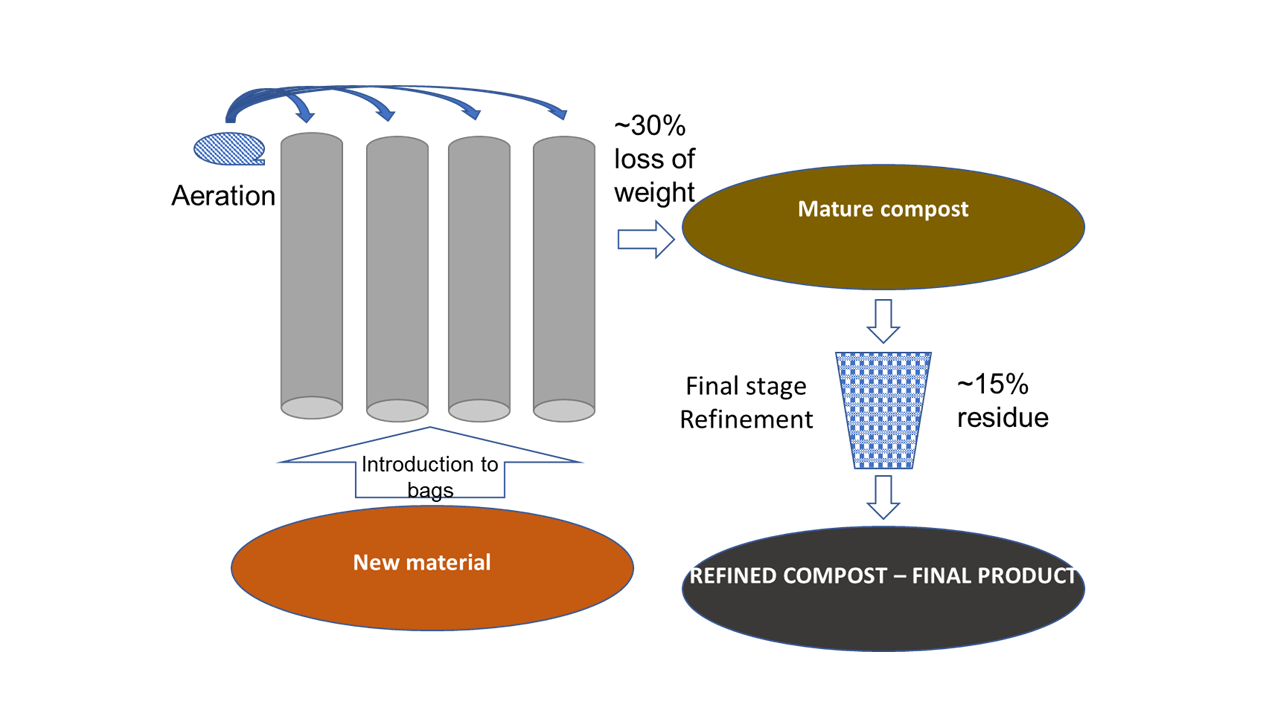
Kalamata’s decentralized waste management and composting scheme is a successful demonstration of the capacity of a municipality to manage its Municipal Solid Wastes (MSW) by adopting methodologies that can be supported by small scale mobile equipment. According to the revised legislation, Join Ministerial Decision (JMD) 51373/4684/2015, each municipality in Greece should organize a regional decentralized waste management plan to comply with the National and EU Legislation. In Kalamata, a mobile Mechanical Biological Treatment (MBT) unit is in operation which consists of a sorting facility in which recyclable materials are recovered from mixed wastes and a composting facility where the Organic Fraction of Municipal Solid Wastes (OFMSW) is treated into closed aerated windrows. This paper attempts to analyze the characteristics of the applied methodology as well as to set a framework for the optimal treatment of the OFMSW in small decentralised units. Several trials have been performed to optimise the effectiveness of different composting practices for OFMSW. Desirable temperature values for degradation (over 50°C), were achieved during the composting process, while oxygen content was kept between 15-20%. Heavy metals were presented in all the samples analyzed, with concentration levels below the limits set by National Legislation. The values of the physicochemical parameters monitored in this study did not exceed the maximum permissible as well.
Total file downloads: 19